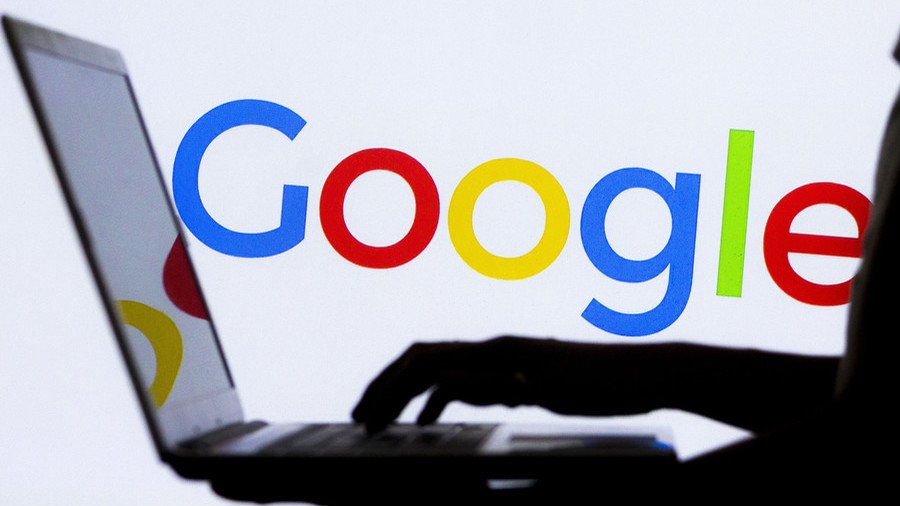'Poisonous connection' of big tech: Google staff confer over anti-Trump search tweak

News that Google staff brainstormed over tweaking its search engine algorithms to counter Trump’s travel ban is part of an “ongoing problem” of liberal bias in big tech, the editor of a media watchdog has told RT.
In what she described as a “poisonous connection” between liberal political bias and Silicon Valley’s biggest tech firms, Carrie Sheffield, national editor of the conservative-leaning Accuracy in Media (AIM), called it “chilling” that politically conservative voices were being silenced.
“There is a dearth of conservative and libertarian thought that is openly expressed in Silicon Valley and is quite often suppressed,” she claimed citing data from the Lincoln Network, a conservative organization based in Silicon Valley.
Author and journalist Eric Burrows argues that the Google discussions represented a wider effort by social media companies to control the way all users used their platform.
“In my view, it’s the continuation of big tech companies like Facebook, Google, Yahoo, Skype, and all the rest of them continuing to show their bias, but also to exert their control over the way regular folk use the internet,” he told RT.
Burrows and Sheffield’s comments come after messages seen by the Wall Street Journal document discussions between Google staff over potentially “leveraging” its search engine algorithm to suggest ways of countering President Trump’s travel ban, after he imposed immigration restrictions on a number of Muslim-majority countries in January 2017.
Ideas suggested by staff but never implemented included tweaking “Islamophobic, algorithmically-biased results from search terms 'Islam,' 'Muslim,' 'Iran,' etc.”
“Prejudiced” search results using terms such as “Mexico,” “Hispanic,” and “Latino," could also be altered, the email chain suggested.
READ MORE:‘It looks like spam’: Facebook hit with more claims that it unfairly censors conservatives
Also discussed in the email chain were ways of promoting search results to suggest donating to progressive organisations such as the American Civil Liberties Union (ACLU) and towards content that keeps “people abreast of how they can help as well as the resources available for immigrants [sic] or people traveling.”
Another report claimed that the company twigged its algorithms so that when users entered “California Republican Party” into Google, the term “nazism” joined “conservatism” and “market-liberalism” as the party’s ideologies.
READ MORE: Censorship or battle against hate & abuse? Infowars Twitter ban fuels free speech debate
Google CEO Sundar Pichai has denied that the company engages in any political bias, calling the stories “absolutely false.”
The Google revelations come at a time when several of the world’s biggest tech firms have been accused of censoring conservative voices on their platforms.
A poll by Pew Research in June founds that 64% of Republicans and 28% of Democrats believed that big tech in the US had a liberal bias.
The matter of anti-conservative censorship online is also set to be the topic of discussion when US Attorney General Jeff Sessions meets state attorneys next week.
Subscribe to RT newsletter to get stories the mainstream media won’t tell you.















